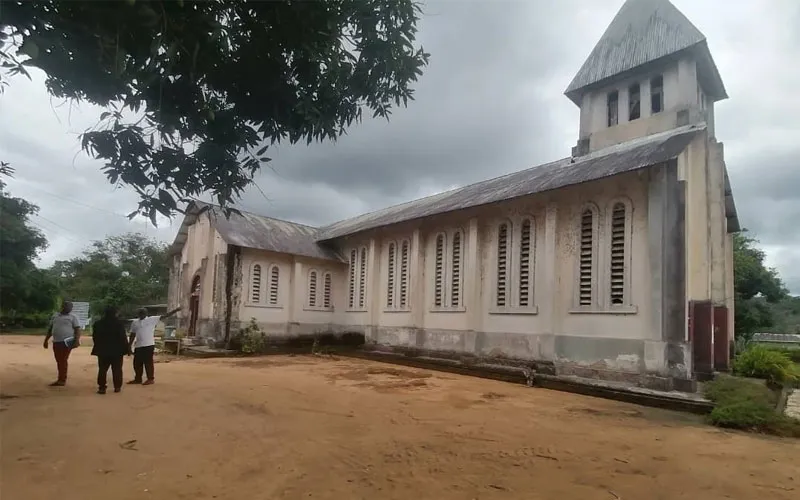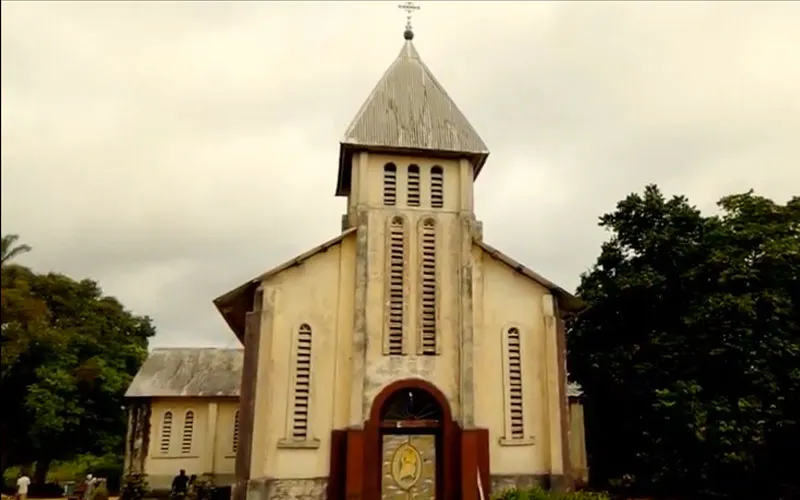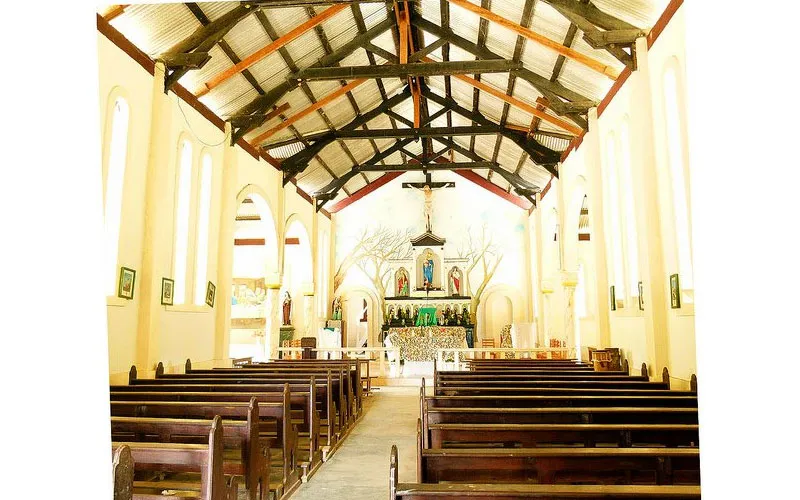 Credit: Fr. Humphrey Tata Mbuyi
Credit: Fr. Humphrey Tata Mbuyi
In the far Northern region of the country, the Islamist armed group Boko Haram has carried out over 100 attacks since January 2019 killing more than 100 civilians, according to AllAfrica.
The conflict between government forces and Boko Haram has killed thousands of Cameroonians and displaced over 270,000 since 2014, leading to the rise of self-defense vigilante groups, AllAfrica has reported.
In the April 20 press conference, Bishop Kome invited Christians in the Central African nation to massively participate in the celebration of the Holy Eucharist scheduled for Divine Mercy Sunday on April 24.
“As Christians, we must be sensitive to the suffering of our people. That is why I invite all Christians and even all men of good will to come to Marienberg so that we continue to implore God's peace on our nation,” the Cameroonian Catholic Bishop said.
(Story continues below)
 Credit: Fr. Humphrey Tata Mbuyi
Credit: Fr. Humphrey Tata Mbuyi
He explained the reason behind the consecration of the country to the Immaculate Heart of Mary, saying, “One of the qualities of Mary is that she is the one who intercedes for us in difficult moments.”
“Our faith therefore tells us that even if we have to continue to act, it is good, above all, to look for solutions where we can find them, and we think that in God we can effectively find this solution and we will entrust the situation to him through the intercession of Mary,” the 52-year-old Bishop who has been at the helm of Bafang Diocese since July 2012 said.
Speaking about the choice of Divine Mercy Sunday, the Cameroonian Bishop said, “These crises in the troubled regions of our country have created wounds and we all need God’s Divine mercy to move forward.”
“We need to pray for the conversion of hearts, for repentance from all atrocities committed in these crises and seek forgiveness and reconciliation. This can only be possible through God’s Divine Mercy and love,” Bishop Kome told journalists April 20.
Jude Atemanke is a Cameroonian journalist with a passion for Catholic Church communication. He holds a Bachelor’s Degree in Journalism and Mass Communication from the University of Buea in Cameroon. Currently, Jude serves as a journalist for ACI Africa.
 Credit: Fr. Humphrey Tata Mbuyi
Credit: Fr. Humphrey Tata Mbuyi



 Credit: Fr. Humphrey Tata Mbuyi
Credit: Fr. Humphrey Tata Mbuyi
 Credit: Fr. Humphrey Tata Mbuyi
Credit: Fr. Humphrey Tata Mbuyi Credit: Fr. Humphrey Tata Mbuyi
Credit: Fr. Humphrey Tata Mbuyi


